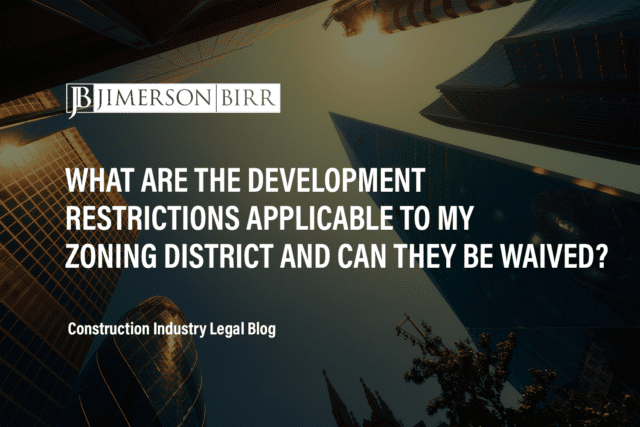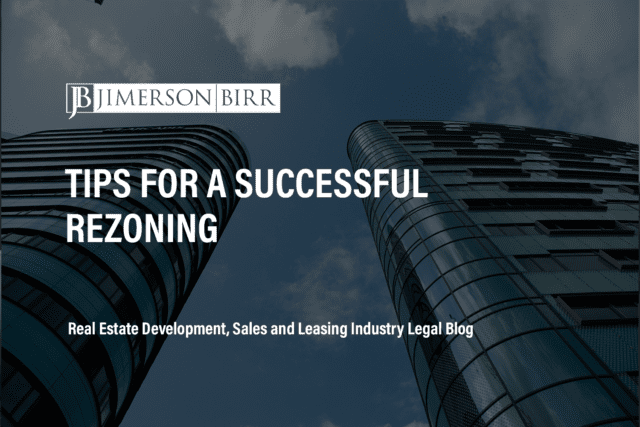What does protected species compliance entail?
Protected species compliance refers to the adherence to environmental laws and regulations that safeguard the well-being of specific plant and animal species identified as endangered, threatened, or otherwise in need of protection. In the context of Florida’s environmental law, protected species compliance ensures that development projects and other activities do not harm the ecosystem and the habitats of protected species.
Need help regarding environmental due diligence, permitting, mitigation, or compliance? Schedule your consultation today with a top environmental law attorney.
In Florida, which laws and regulations apply to protected species compliance?
Several vital laws and regulations govern protected species compliance in Florida, including federal and state statutes. The foremost federal law is the Endangered Species Act (ESA), which is enforced by the U.S. Fish and Wildlife Service (USFWS) and the National Marine Fisheries Service (NMFS). The ESA’s primary objective is to conserve endangered and threatened species and their ecosystems.
At the state level, the Florida Endangered and Threatened Species Act offers additional protection for Florida’s native species. Furthermore, Florida Administrative Code Chapter 68A-27 establishes rules for protecting endangered, threatened, and species of particular concern, defining specific prohibitions and requirements for managing these species.
Another essential regulation in Florida is the Florida Manatee Sanctuary Act, which protects the Florida manatee, a threatened species, from harassment, harm, or death. The Florida Wildlife Commission enforces this act and restricts activities that may negatively affect manatees, such as boat operations in designated manatee protection zones.
What are common issues regarding protected species compliance that lead to litigation?
The following issues are among the most common in actions regarding protected species compliance in environmental law matters:
- Habitat destruction: Destruction or alteration of a protected species’ habitat, often caused by development projects, can lead to litigation under the ESA or the Florida Endangered and Threatened Species Act.
- Incidental take: The unintentional harming or killing of a protected species during an otherwise lawful activity, such as construction, can lead to legal action if the activity did not have proper permits or violated the terms of existing permits.
- Failure to obtain permits: Parties may face litigation if they do not receive necessary permits or authorizations, such as Incidental Take Permits under the ESA or permits from the Florida Fish and Wildlife Conservation Commission.
- Noncompliance with mitigation measures: When parties fail to implement or follow through on necessary mitigation measures to offset potential harm to protected species, they may face enforcement actions or litigation.
When a set of facts is appropriate for legal intervention, there are many paths a claimant may take. We are value-based attorneys at Jimerson Birr, which means we look at each action with our clients from the point of view of costs and benefits while reducing liability. Then, based on our client’s objectives, we chart a path to seek appropriate remedies.
To determine whether your unique situation may necessitate litigation, please contact our office to set up your initial consultation.
What claims about protected species compliance do plaintiffs generally bring to court, and what are common legal defenses to those claims?
To file a protected species compliance-related lawsuit, a plaintiff typically must satisfy standing requirements and present evidence of actual or imminent harm to a protected species or its habitat. Showing actual or imminent harm generally includes demonstrating a connection between the alleged violation and the harm to the species or habitat.
Common claims that real estate developers and businesses face related to protected species compliance include:
- Violations of the ESA
- Violations of the Florida Endangered and Threatened Species Act
- Noncompliance with state and local environmental regulations, such as those enforced by the Florida Wildlife Commission
- Breach of permit conditions or other authorizations
In response to these claims, real estate developers and businesses may raise the following legal defenses:
- Compliance with permit conditions: Defendants can argue that they have complied with all relevant permit conditions, authorizations, and mitigation measures.
- Lack of standing: Defendants may challenge a plaintiff’s standing to bring the lawsuit, arguing that the plaintiff has not demonstrated sufficient interest or injury related to the alleged violation.
- No causal connection: Defendants can assert that the alleged harm to the protected species or habitat is not directly attributable to their actions or that other factors contributed to the harm.
- Statute of limitations: Defendants may argue that the plaintiff’s claims are time-barred, meaning they were not filed within the required time frame under applicable laws.
Overall, developers and businesses must diligently understand and adhere to protected species compliance requirements to avoid potential litigation.
Please contact our office to set up your initial consultation to see what actions or defenses may be available for your unique situation.
What are effective measures to minimize the risk of litigation over protected species compliance?
Developers and businesses can consider the following measures:
- Early consultation: Engage with federal and state agencies such as the U.S. Fish and Wildlife Service and the Florida Fish and Wildlife Conservation Commission early in the project planning process to identify potential protected species issues.
- Hire experienced professionals: Retain qualified consultants, such as environmental engineers, biologists, or lawyers, to assist in project design and compliance efforts.
- Conduct thorough assessments: Perform comprehensive biological surveys and habitat assessments to identify the presence of protected species and their habitats on a project site.
- Obtain necessary permits: Apply for and obtain all required permits, such as Incidental Take Permits under the Endangered Species Act or permits from the Florida Fish and Wildlife Conservation Commission.
- Implement mitigation measures: Develop and execute mitigation plans to minimize impacts on protected species and their habitats during project development and operation.
Frequently Asked Questions
- What is an Incidental Take Permit, and when do I need one?
An Incidental Take Permit (ITP) is a permit issued under the Endangered Species Act that allows the unintentional “take” (i.e., harm or killing) of a protected species during an otherwise lawful activity. If your project might impact a protected species or its habitat, you should consult with regulatory agencies to determine if an ITP is necessary.
- Can I continue my project if I discover protected species during construction?
If you encounter a protected species during construction, immediately stop work and notify the appropriate regulatory agencies. You may need to obtain additional permits or implement mitigation measures before resuming work. Failing to do so could result in legal actions or fines.
- How do I know if a species is protected under Florida or federal law?
To determine if a species is protected, consult the U.S. Fish and Wildlife Service’s list of endangered and threatened species and the Florida Fish and Wildlife Conservation Commission’s lists of state-designated endangered, threatened, or species of particular concern. Additionally, consulting with environmental experts or legal counsel can help ensure compliance with all applicable regulations.
Have more questions about an environmental law-related situation?
Crucially, this overview of protected species compliance does not begin to cover all the laws implicated by this issue or the factors that may compel the application of such laws. Every case is unique, and the laws can produce different outcomes depending on the individual circumstances.
Jimerson Birr attorneys guide our clients to help make informed decisions while ensuring their rights are respected and protected. Our lawyers are highly trained and experienced in the nuances of the law, so they can accurately interpret statutes and case law and holistically prepare individuals or companies for their legal endeavors. Through this intense personal investment and advocacy, our lawyers will help resolve the issue’s complicated legal problems efficiently and effectively.
Having a Jimerson Birr attorney on your side means securing a team of seasoned, multi-dimensional, cross-functional legal professionals. Whether it is a transaction, an operational issue, a regulatory challenge, or a contested legal predicament that may require court intervention, we remain tireless advocates at every step. Being a value-added law firm means putting the client at the forefront of everything we do. We use our experience to help our clients navigate even the most complex problems and come out the other side triumphant.
If you want to understand your case, the merits of your claim or defense, potential monetary awards, or the amount of exposure you face, you should speak with a qualified Jimerson Birr lawyer. Our experienced team of attorneys is here to help. Call Jimerson Birr at (904) 389-0050 or use the contact form to schedule a consultation.

We live by our 7 Superior Service Commitments
- Conferring Client-Defined Value
- Efficient and Cost-Effective
- Accessibility
- Delivering an Experience While Delivering Results
- Meaningful and Enduring Partnership
- Exceptional Communication Based Upon Listening
- Accountability to Goals











